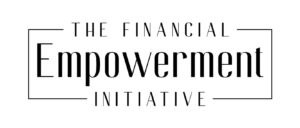
Financial literacy is the ability to understand and effectively use various financial skills, including personal financial management, budgeting, and investing. Financial literacy is the basis of our relationship with money.
It is a lifelong journey of learning good habits and unlearning bad habits. It is a lifelong journey of becoming financially empowered.
The journey to financial literacy starts in the mind. It starts with consciously deciding to wage war on poverty. Poverty in mind, poverty in the purse, and generational poverty can be eradicated if we can be determined to change.
Change in this way means taking little steps in the right direction, which counts substantially over some time.
Being financially illiterate can lead to several pitfalls, such as being more likely to accumulate unsustainable debt burdens, either through poor spending decisions or a lack of long-term preparation. This, in turn, can lead to poor credit, bankruptcy, housing foreclosure, and other negative consequences.
Financial literacy also covers short-term financial strategy as well as a long-term financial strategy. Financial literacy encompasses knowing how investment decisions made today will impact your tax liabilities in the future. This also includes knowing which investment vehicles are best to use when saving for retirement.
Financial Literacy gives you three major things:
- It gives you confidence: This confidence comes over time. Individuals can approach major life decisions with confidence that they have what it takes to handle confidently all that comes their way. Knowing they can handle whatever comes their way gives a certain peace. Knowledge about money is accumulated over time and can come into perspective
- Financial literacy can help you reach life goals. Whatever life goals you set for yourself, being armed with financial literacy skills will certainly help.
- Financial literacy helps you to prepare for life emergencies. Life has a way of throwing emergencies at us. It could be a health scare or a leaking pipe.
